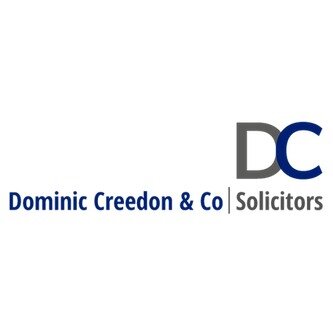Best Private Client Lawyers in Cork
Share your needs with us, get contacted by law firms.
Free. Takes 2 min.
List of the best lawyers in Cork, Ireland
About Private Client Law in Cork, Ireland
Private Client law in Cork, Ireland, encompasses legal services tailored to individuals and families regarding their personal affairs, assets, and succession planning. It primarily focuses on matters such as drafting wills, estate and tax planning, administration of estates, trusts, enduring powers of attorney, and issues related to elderly and vulnerable clients. Private Client lawyers in Cork provide guidance to ensure their clients’ assets are protected and passed on according to their wishes, all while complying with Irish law.
Why You May Need a Lawyer
There are several situations where seeking assistance from a Private Client lawyer in Cork is essential. Some common scenarios include:
- Creating or updating a will to ensure your estate is distributed as you wish
- Setting up enduring powers of attorney for decision-making in the event you lose capacity
- Administering the estate of a deceased family member, including dealing with the Probate Office
- Managing complex family situations involving second marriages, blended families, or international assets
- Establishing trusts for minor children or vulnerable dependents
- Protecting your rights and property if you are elderly or vulnerable to financial abuse
- Legal guidance on inheritance tax and other relevant taxation matters
A Private Client lawyer provides peace of mind and ensures your interests and those of your loved ones are safeguarded.
Local Laws Overview
Cork, as part of Ireland, is governed by the laws of the state, which are highly relevant to Private Client matters. Key aspects include:
- Wills and Succession Law: The Succession Act 1965 regulates how property is inherited in Ireland. If there is no will (intestacy), the law decides who inherits the estate. Spouses, children, and civil partners have certain legal rights to a share of the estate, regardless of the will's terms.
- Probate: Grant of Probate or Grant of Administration is usually required before an executor or administrator can deal with the deceased’s estate. This process is overseen by the Probate Office, with a local office in Cork.
- Enduring Power of Attorney: Irish law allows a person to appoint another to make decisions on their behalf should they lose capacity. This appointment must be registered to be effective.
- Inheritance Tax: Beneficiaries may have to pay Capital Acquisitions Tax, depending on their relationship to the deceased and the value of their inheritance.
- Protection of Vulnerable Adults: The Assisted Decision-Making (Capacity) Act 2015 introduced new frameworks for assisting and protecting adults who may not have the capacity to manage their own affairs.
Frequently Asked Questions
What is probate and when is it required?
Probate is the legal process of proving and registering a person’s will after their death. If the deceased owned assets in their sole name, a Grant of Probate (or Administration if there is no will) from the court is typically required before these assets can be distributed.
Do I need a will?
While not legally required, having a will ensures your assets are distributed according to your wishes and can help avoid disputes or complications for your loved ones.
What happens if I die without a will?
If you die intestate (without a will), your estate will be distributed according to the rules laid out in the Succession Act 1965. This may not reflect your personal wishes and can complicate matters for your family.
What is an Enduring Power of Attorney (EPA)?
An EPA allows you to appoint someone to manage your financial and personal affairs if you lose mental capacity in the future. It must be created when you have full mental capacity and registered to take effect.
Are trusts commonly used in Ireland?
Trusts can be used for tax planning, for managing assets for children or vulnerable individuals, or for privacy reasons. Their use has to be carefully structured to comply with Irish law and tax regulations.
How can I minimise inheritance tax for my beneficiaries?
Inheritance tax can sometimes be managed through proper estate planning, use of tax exemptions, and timing of gifts. Consulting with a Private Client lawyer is crucial to tailor the best strategy for your circumstances.
What responsibilities does an executor have?
An executor manages the estate of a deceased person according to the will, including gathering assets, paying debts and taxes, and distributing assets to beneficiaries. This can be a complex and time-consuming role.
Can I challenge a will?
A will can sometimes be challenged on various grounds, such as lack of capacity, undue influence, or failure to provide for dependents as required by law. Legal advice should be sought if you believe you have grounds to contest a will.
Can foreign assets be included in my Irish will?
Yes, but special provisions may be needed due to differing legal systems and tax laws in other countries. International estate planning requires specialised advice.
How can I protect a vulnerable family member in my estate planning?
You can use trusts, appoint guardians, and explore mechanisms like the Assisted Decision-Making (Capacity) Act to help protect individuals who may not be able to manage their own affairs.
Additional Resources
A number of resources and organisations in Cork and Ireland can assist with Private Client matters:
- Law Society of Ireland: For guidance on wills, probate, and finding a solicitor
- Citizens Information: Offers clear and accessible information on legal rights and the processes involved in wills, probate, inheritance, and decision-making capacity
- Probate Office Cork: Handles local applications for Grants of Probate and Administration
- Revenue Commissioners: For advice and forms relating to inheritance tax (Capital Acquisitions Tax)
- Safeguarding Ireland: Guidance on protecting vulnerable adults and supportive decision-making
Next Steps
If you require legal assistance in Private Client matters in Cork, start by gathering all relevant information about your assets, family situation, and the outcomes you wish to achieve. Schedule an initial consultation with a solicitor who specialises in Private Client law. During your meeting, be open about your circumstances and ask for a clear explanation of the services, costs, and potential outcomes. Always ensure that your solicitor is qualified, insured, and experienced in the areas most relevant to you. Taking these steps will help you protect your interests and plan for your family’s future with confidence.
Lawzana helps you find the best lawyers and law firms in Cork through a curated and pre-screened list of qualified legal professionals. Our platform offers rankings and detailed profiles of attorneys and law firms, allowing you to compare based on practice areas, including Private Client, experience, and client feedback.
Each profile includes a description of the firm's areas of practice, client reviews, team members and partners, year of establishment, spoken languages, office locations, contact information, social media presence, and any published articles or resources. Most firms on our platform speak English and are experienced in both local and international legal matters.
Get a quote from top-rated law firms in Cork, Ireland — quickly, securely, and without unnecessary hassle.
Disclaimer:
The information provided on this page is for general informational purposes only and does not constitute legal advice. While we strive to ensure the accuracy and relevance of the content, legal information may change over time, and interpretations of the law can vary. You should always consult with a qualified legal professional for advice specific to your situation.
We disclaim all liability for actions taken or not taken based on the content of this page. If you believe any information is incorrect or outdated, please contact us, and we will review and update it where appropriate.
Browse private client law firms by service in Cork, Ireland
Cork, Ireland Attorneys in related practice areas.















